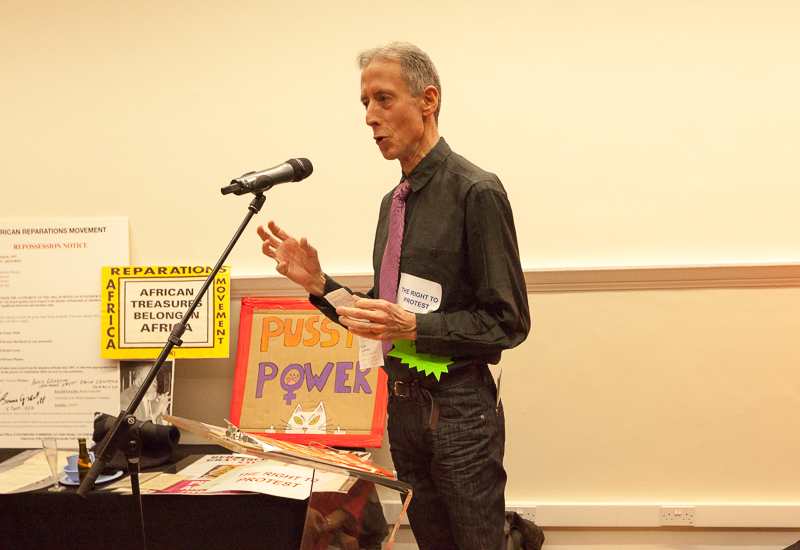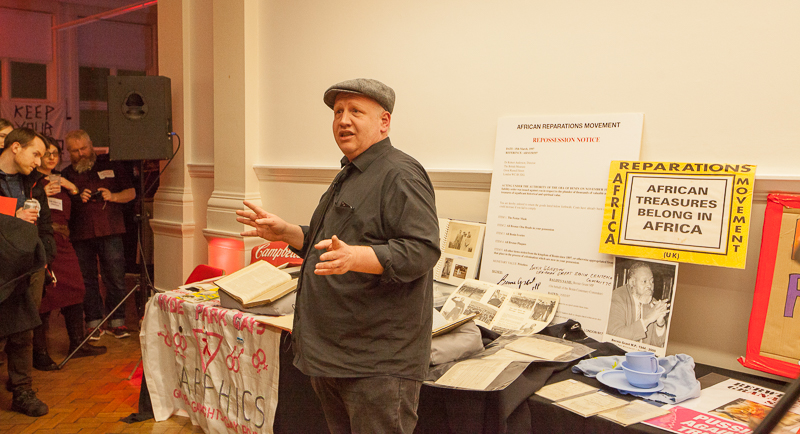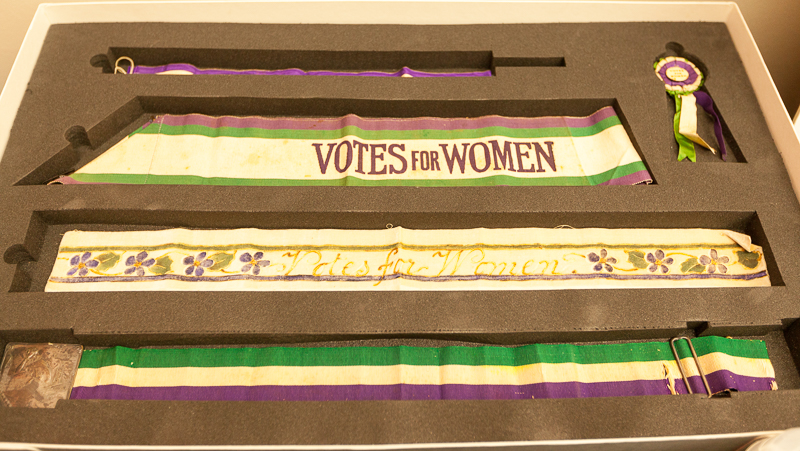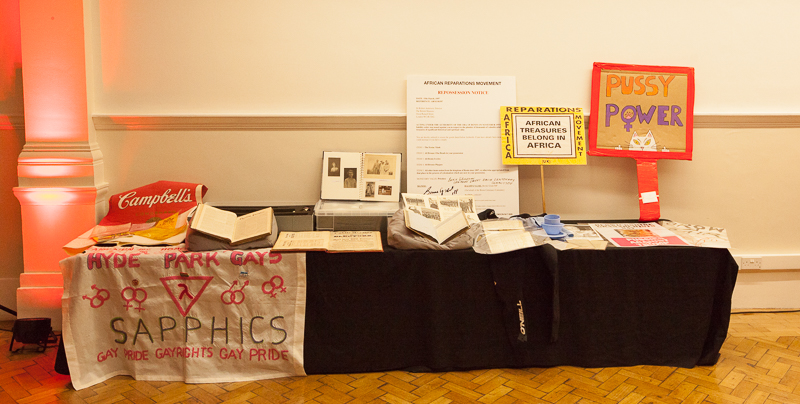5 Mar 2018 | Media Freedom, media freedom featured, News and features, Press Releases
[vc_row][vc_column][vc_column_text]Index on Censorship has launched a campaign to raise £15,000 to help us document growing threats to media freedom.
Times columnist and Index chair David Aaronovitch kicked off the campaign by writing to supporters following the murder in Slovakia of Jan Kuciak, a journalist investigating links between organised crime and politics: “This happened not in a war zone, not in a dictatorship, but in an EU member state.”
Aaronovitch said that when he became chair of Index on Censorship five years ago, he was naïve: “Back then I thought that, in the West at least, the idea of freedom of speech and expression was largely a fought and won battle.”
In the time that Aaronovitch has been chair of Index, media freedom around the world has come under increasing pressure, including in Europe and neighbouring states. In the past six months alone, journalists in Turkey have received life sentences just for doing their job. In Malta, journalist Daphne Caruana Galizia was murdered for exposing corruption. [/vc_column_text][/vc_column][/vc_row][vc_row][vc_column width=”1/4″][vc_icon icon_fontawesome=”fa fa-times” color=”black” background_style=”rounded” size=”xl” align=”right”][/vc_column][vc_column width=”3/4″][vc_column_text]
“I’ve realised how easily we can suggest that we’re for freedom of expression from one corner of our mouths, yet espouse limiting such expression from the other,” Aaronovitch wrote.
[/vc_column_text][/vc_column][/vc_row][vc_row][vc_column][vc_column_text]Despite this, there have been inspiring people fighting back even the face of difficult and dangerous circumstances, he added.
To continue to support media freedom in the challenging times ahead, Index needs your help.
A donation of £20 ensures a verified attack against media freedom is mapped publicly online; a gift of £100 enables an official report to pressure governments; a gift of £1000 supports extensive fieldwork to identify and confirm reported violations.
The goal is to raise at least £15,000 by the end of March to map attacks over the next six months and demand governments to do more to stop them.
You can read the full letter from David Aaronovitch here.[/vc_column_text][/vc_column][/vc_row]
5 Mar 2018 | About Index
Last week, Jan Kuciak, a journalist investigating links between organised crime and politics, was shot dead – along with his fiancée. This happened not in a war zone, not in a dictatorship, but in Slovakia: an EU member state.
When I became chair of Index on Censorship five years ago, I was naïve.
Back then I thought that, in the West at least, the idea of freedom of speech and expression was largely a fought and won battle, and that internationally the Force was with us.
I’ve learned a lot in that half decade. I’ve seen great gains in countries such as Turkey thrown into sharp reverse, with life sentences for journalists just doing their job. I’ve seen not just the murder of Kuciak, but also the killing of an investigative journalist in Malta for exposing corruption. I’ve seen cartoonists gunned down in their office in a European capital city and then blamed for their own murders.
I’ve realised how easily we can suggest that we’re for freedom of expression from one corner of our mouths, yet espouse limiting such expression from the other.
But I’ve also witnessed the fight-back against such restrictive mentalities and outlooks. I’ve met the most inspiring people working in the most difficult and dangerous of circumstances, and been able to offer succour and resources.
I’ve been a small part of the argument for free speech and expression which Index never, ever stops making.
You can help make it too. To continue to do this effectively in the challenging times ahead, we need your help.
A donation of £20 ensures a verified attack against media freedom is mapped publicly online; a gift of £100 enables an official report to pressure governments; a gift of £1000 supports extensive fieldwork to identify and confirm reported violations.
Our goal is to raise at least £15,000 by the end of March to map attacks over the next six months and demand governments to do more to stop them.
I hope you will join me in supporting Index and your right to a free press. Please donate today.
Yours ever,
David Aaronovitch
26 Feb 2018 | Campaigns -- Featured, Statements
Index on Censorship condemns the murder of investigative journalist Jan Kuciak in Slovakia — just months after the killing of Daphne Caruana Galizia in Malta. Kuciak was known for his investigations on tax fraud among businessmen connected to the country’s ruling party. He and his girlfriend were reported to have been shot dead at his home over the weekend, news website Dennik N reported on Monday, citing the Interior Ministry.
The murders raise troubling questions about the safety of media professionals in the European Union, says Index.
“A thorough and transparent investigation into the murder of Jan Kuciak is extremely important. Index calls on the European Union to ensure that an independent investigation takes place and that the legal process meets international standards” Index’s head of advocacy Joy Hyvarinen said. “Investigative journalism is vital to healthy democracies. In 2017, Index on Censorship’s Mapping Media Freedom platform documented 67 cases in which journalists were targeted with threats, violence and death for reporting on corruption.”
Corruption is becoming a major issue in the EU and neighbouring countries, undermining democracy and putting individuals at risk. Journalists play a key role in uncovering and fighting corruption through their investigations and, as a result, put themselves in danger.
On 16 October the Maltese journalist Daphne Caruana Galizia was murdered when the car she was driving exploded. Caruana Galizia published a number of articles on her blog investigating corruption.
“We need to stop behaving as if threats to journalists’ safety happen ‘somewhere else,’” said Index on Censorship CEO Jodie Ginsberg. “Prominent journalists in the United States get regular death threats – and are becoming used to it as part of their daily lives. Meanwhile, in the European Union two investigative journalists have been killed in less than six months. We need to wake up to this growing menace.”
On 16 August, Parim Olluri, editor-in-chief of investigative website Insajderi, was physically assaulted by unknown individuals outside his home in Kosovo’s capital Pristina. Olluri believes the attack was linked to his work. A few days before the assault, Olluri had published an editorial about corruption allegations against former Kosovo Liberation Army commanders, after which he received a torrent of abuse and threats on social media.
Failure to properly investigate cases and bring perpetrators to justice fosters an atmosphere encouraging further attacks.
30 Jan 2018 | News and features, Volume 46.04 Winter 2017, Volume 46.04 Winter 2017 Extras
[vc_row][vc_column][vc_column_text]

Peter Tatchell discusses the importance of the right to protest. (Photo: Sean Gallagher / Index on Censorship)
Index on Censorship magazine celebrated the launch of its winter 2017 magazine at the Bishopsgate Institute in London with an evening exploring the legacies of iconic protests from 1918 and 1968 to the modern day and reflecting on how today, more than ever, our right to protest is under threat.
Speakers for the evening included human rights campaigner Peter Tatchell, Bishopsgate Institute special collections and archives manager Stefan Dickers and artist Patrick Bullock.
Tatchell discussed the importance of protest for any democracy and the significant anniversaries of protests in 2018 throughout his speech. “This year is a very special year, a very historic year, I think that those protests remind us that protest is vital to democracy,” he said. “It is a litmus test of democracy, it is a litmus of a healthy democracy. Democracies that don’t have protest, there is a problem, in fact, you might even say they aren’t true democracies.”
“With 1968 came the birth of the women’s liberation movement, the mass protests in Czechoslovakia against Russian occupation, and, of course, the huge protests against the American war in Vietnam,” Tatchell added. “Those protests all remind us that protest is vital to democracy.”

Bishopsgate Institute special collections and archives manager Stefan Dickers at the launch of What price protest? (Photo: Sean Gallagher / Index on Censorship)
This year also marks the centenary of the right to vote for women in Britain. Dickers showcased artefacts the Bishopsgate Institute’s collection of protest memorabilia, including sashes worn by the Suffragettes and tea sets women were given upon leaving prison for activities related to their activism.

Suffragette sashes at the launch of What price protest? (Photo: Sean Gallagher / Index on Censorship)
Attendees included actor Simon Callow, who stressed the importance of protest and freedom of expression: in an interview at the event with Index on Censorship. “There are all sorts of things that people find inconvenient and uncomfortable to themselves, that they don’t wish to hear, but that’s not the point,” he said. “The point is that if some people feel very strongly that certain things are wrong, then they must be allowed to say something.”

Disobedient objects at the launch of What price protest? (Photo: Sean Gallagher / Index on Censorship)
Eastenders actress Ann Mitchell, who also attended the event, said: “There is no question in my opinion, that the darkness in the world at the moment must be protested against. All the advantages we have won as women, as ethnic minorities, are being destroyed, they are being wiped out. Unless we hear voices of protests for that, that will continue.”
The night concluded with a performance by protest choir Raised Voices.
Index magazine’s winter issue on the right to protest features articles from Argentina, England, Turkey, the USA and Belarus. Activist Micah White proposes a novel way for protest to remain relevant. Author and journalist Robert McCrum revisits the Prague Spring to ask whether it is still remembered. Award-winning author Ariel Dorfman’s new short story — Shakespeare, Cervantes and spies — has it all. Anuradha Roy writes that tired of being harassed and treated as second-class citizens, Indian women are taking to the streets.b
[/vc_column_text][/vc_column][/vc_row][vc_row][vc_column width=”1/3″][vc_custom_heading text=”What price protest?”][vc_column_text]Through features, interviews and illustrations, the winter issue of Index on Censorship magazine looks at the state of protest today, 50 years after 1968, and exposes how it is currently under threat.
With: Ariel Dorfman, Anuradha Roy, Micah White, Richard Ratcliffe[/vc_column_text][/vc_column][vc_column width=”1/3″][vc_single_image image=”96747″ img_size=”medium”][/vc_column][vc_column width=”1/3″][vc_custom_heading text=”Subscribe”][vc_column_text]In print, online. In your mailbox, on your iPad.
Subscription options from £18 or just £1.49 in the App Store for a digital issue.
Every subscriber helps support Index on Censorship’s projects around the world.
 SUBSCRIBE NOW[/vc_column_text][/vc_column][/vc_row]
SUBSCRIBE NOW[/vc_column_text][/vc_column][/vc_row]




